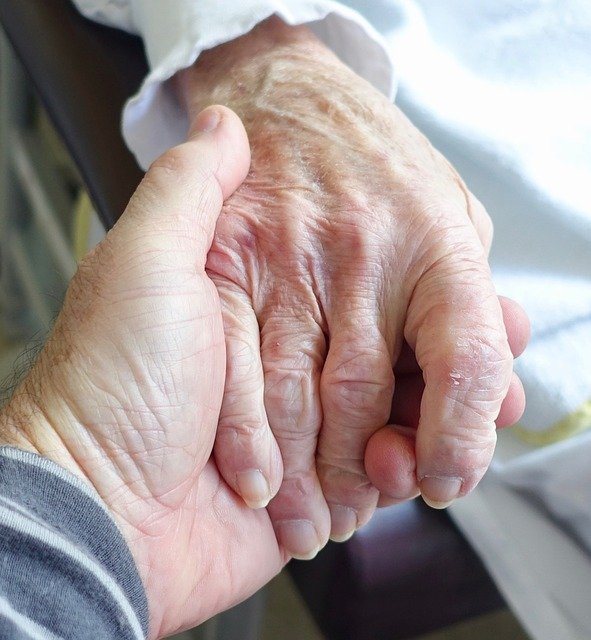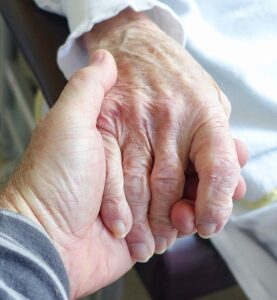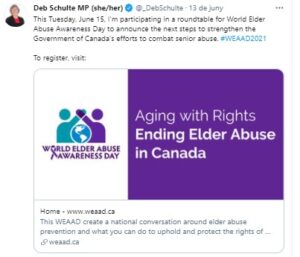World Elder Abuse Awareness Day 2021
Seniors are considered our most valued members of society. We learn from their experiences, take advice from their wisdom and benefit from their contributions to society. Traditionally, it is common to treat people of older ages with respect and dignity. Unfortunately, that is not always the case.
Every year on June 15, people from all walks of life unite to acknowledge World Elder Abuse Awareness Day (WEAAD). The International Network for the Prevention of Elder Abuse first established the idea in June 2006. The day was officially recognized by the United Nations in 2011.
Although it is only one day in the year, it is an opportunity for the whole world to voice its opposition to the abuse and suffering inflicted upon members of our more mature generations.
Today, WEAAD is teaming up with other organizations in support of seniors to host a free national online event called, “Aging with Rights: Ending Elder Abuse in Canada”. The conversation will centre around elder abuse prevention and what is within everyone’s power – the ability to uphold and protect the rights of seniors in every community.
Canada’s Minister of Seniors, the Honourable Deb Schulte will take part in this year’s event. The Minister indicated the purpose of her participation, “to announce the next steps to strengthen the Government of Canada’s efforts to combat senior abuse”. (See below, C/O MP Deb Schulte Twitter page)
According to some of the statistics from the World Health Organization, (WHO), sadly, one in two people are prejudiced against older people. When it comes to people over the age of sixty, one in six are victims of elder abuse. Unfortunately, cases go unreported and true figures can be difficult to determine. As such, countless vulnerable members of society suffer in silence.
Although the full extent of elder mistreatment is unknown, it is a serious health and social problem – a crisis in itself. For instance, one only needs to look at the devastating loss of life in long-term care (LTC) in the wake of Covid-19. In the early stages of the pandemic (May 2020), just over 80% of Canada’s Covid-related deaths were residents of LTC homes and retirement facilities.
It took a Canadian military report to reveal numerous deplorable conditions in several Ontario LTC homes. Instances of dehydration and neglect led to dozens of resident deaths, causes other than Covid-19.
Not only did society fail seniors, but Government did as well. The LTC Commission report also revealed similar findings. “Apart from fatalities due to Covid-19, residents died as a result of neglect due to staffing shortages”, the report outlined. Failure by government to ensure that residents received proper care, support and protection is a tragic example of elder abuse.
Abuse is generally described as treating someone with cruelty or violence. It can also refer to any action or inaction by self or others that endangers the health and well being of any person. It takes on several forms including, emotional, physical, verbal, financial, medical, sexual and neglect.
The numbers are troubling. According to Statistics Canada (2019), of the reported 14,516 victimized seniors, roughly one-third (4,518) were abused by a family member. Most commonly, it is someone close to them including a friend or caregiver.
As a society, it is our duty to protect older adults who may be at risk of abuse. After all, they are still valued members of our families and communities.





